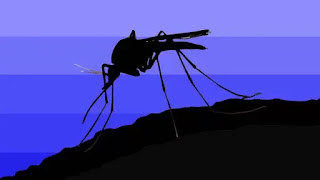Kenyan researchers discover microbe that blocks transmission of malaria
Cape Town - Scientists in the fight against malaria have adopted a new approach which has yielded breakthrough results: by protecting mosquitoes, people are protected.
They have discovered a microbe called Microsporidia MB, which lives in mosquitoes' stomach and sexual organs and prevents the insects from being infected with malaria and therefore from transmitting the disease to humans.
This is according to scientists from the International Centre of Insect Physiology and Ecology (ICIPE) based in Nairobi, in collaboration with their fellow scientists from the University of Glasgow in the UK, who made the fundamental discovery, which has the possibility to eradicate malaria completely.
The research was primarily conducted on mosquitoes from Lake Victoria, which borders Uganda, Kenya, and Tanzania. ICIPE’s research found approximately 5% of mosquitoes in this area carry the natural microbe. They hope to breed more mosquitoes with the microbe or to infect male mosquitoes with the microbe in order for it to be passed on to female mosquitoes during reproduction.
Lilian Mbaisi, a Kenyan academic who is currently pursuing her Master of Science (MSc) at the University of Nairobi and a member of the research team, explained: "We were excited to find that the Microsporidia MB symbiont is transmitted from mother mosquitoes to their offspring, and that the microbe does not compromise the ability of mosquitoes to survive.”
The research paper published on Nature.com on Monday cites how current methods have reduced malaria infections by approximately 40% since 2015. However, the disease still poses a major threat to the health and economic development of countries where malaria is a risk, and highlights how the fight against malaria has stagnated since.
Physical measures of bed nets, insecticides and treatment once a person is infected will become redundant and many lives will be saved thanks to ICIPE’s transmission-blocking intervention.
The research team emphasises the need for further studies to be conducted in order to fully understand how this newly discovered microbe could effectively control malaria.
Source: iol


Comments
Post a Comment